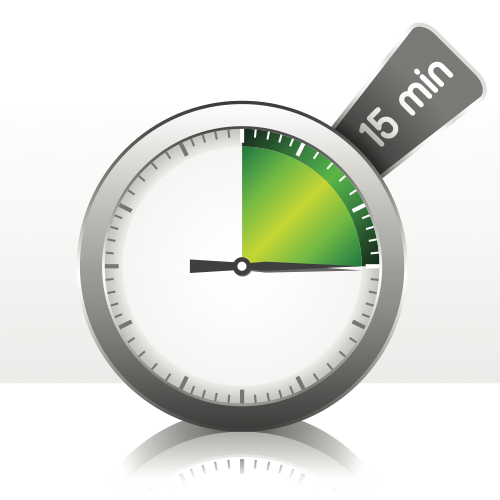This post originally appeared on ToddHenry.com.
Have you tried to stream media over the web lately? Unless you have fiber running through your walls, you probably encountered a brief moment of delay before the video started playing. The player was buffering content to get ahead of playback.
Your device (computer, phone, etc.) was doing a calculation based on your bandwidth, the speed of the server, etc. to determine how much buffering is needed so that playback isn’t interrupted as you are watching. The objective is to make sure that the experience is seamless.
Have you ever considered that you may need a similar kind of buffering in your days? Many of us don’t, and as a result we rush from meeting to meeting or task to task with little space in the midst of them to collect ourselves, consider how we are approaching our work, and re-center our energy for the task we’re about to undertake.
Several years ago I discovered the importance of buffers when I was in an especially busy season. It made a remarkable difference in my performance, and in my ability to be present in my work. Here are a few buffers I’d encourage you to attempt:
Always have at least ten minutes between meetings
If you set your own schedule, this is easier. However, if you work within an organization, try to encourage your organization to move to a 45 minute meeting default rather than the standard 60. This allows everyone to collect themselves, re-focus for their next priority, and have some “buffer” time between commitments.
Buffer between big tasks
Don’t jump from task to task, especially those that are challenging. Give yourself some space in between to re-center yourself and consider how you will start the next one. You may find that taking this short amount of time helps you get off to a better start and circumnavigate assumptions about what the task requires.
Establish a buffer between work and home
This was crucial for me. I used to spend my 15 minute commute on the phone, finalizing my work for the day, or having conversations that had slipped through the cracks. This meant that I often arrived home stressed, frantic, and still carrying the pressures of the day. I decided to use my commute as a time of silence, meditation, and thought, and it calmed me significantly. Additionally, I would often leave work a few minutes early and stop off at a bookstore as a way to feed my soul a bit before heading home. While not always possible, this made me much more ready to re-engage with my family when I walked through the front door.
These are just a few of the ways I’ve found to establish buffers. In the end, how you manage your energy determines how much of yourself you bring to your work. Be intentional, build buffers, and make sure that you’re bringing the best of who you are to what you do.
Do you have any buffers you’ve found effective and would like to share? Please do so in the comments.
 “One of the best books of the year. Passionate, practical and powerful, Todd will help you do more and do it better, starting right now.” – Seth Godin, author of The Icarus Deception
“One of the best books of the year. Passionate, practical and powerful, Todd will help you do more and do it better, starting right now.” – Seth Godin, author of The Icarus Deception
Available now! Amazon.com – Barnes & Noble – IndieBound




I agreed with all of your “buffering” technics. In particular, I like to “buffer” between tasks. I have found it helpful, when I first start a large task – especially one that requires focusing all my creativity – to start by jotting down everything floating around in my head. Doesn’t matter if it’s related to my task or not. (Though it is especially helpful to jot down everything regarding my upcoming task.)
By placing everything down on paper, I free up my mind and I can FOCUS!
Thanks for the great post!
Great list! I find the “commute buffer” to be the most helpful for me. Having that time on the way home from work to unwind a bit and prepare to engage my family is most helpful. As men, leading our families the way God desires involves so much more than mere financial provision. Thanks for the post.
Buffer #3 is what I’m missing. There is no commute, because I have a home office. And although its
separate from the main house, there’s still not enough of a buffer. I should probably end
my day by driving around the neighborhood and coming in a different door
than how I left.